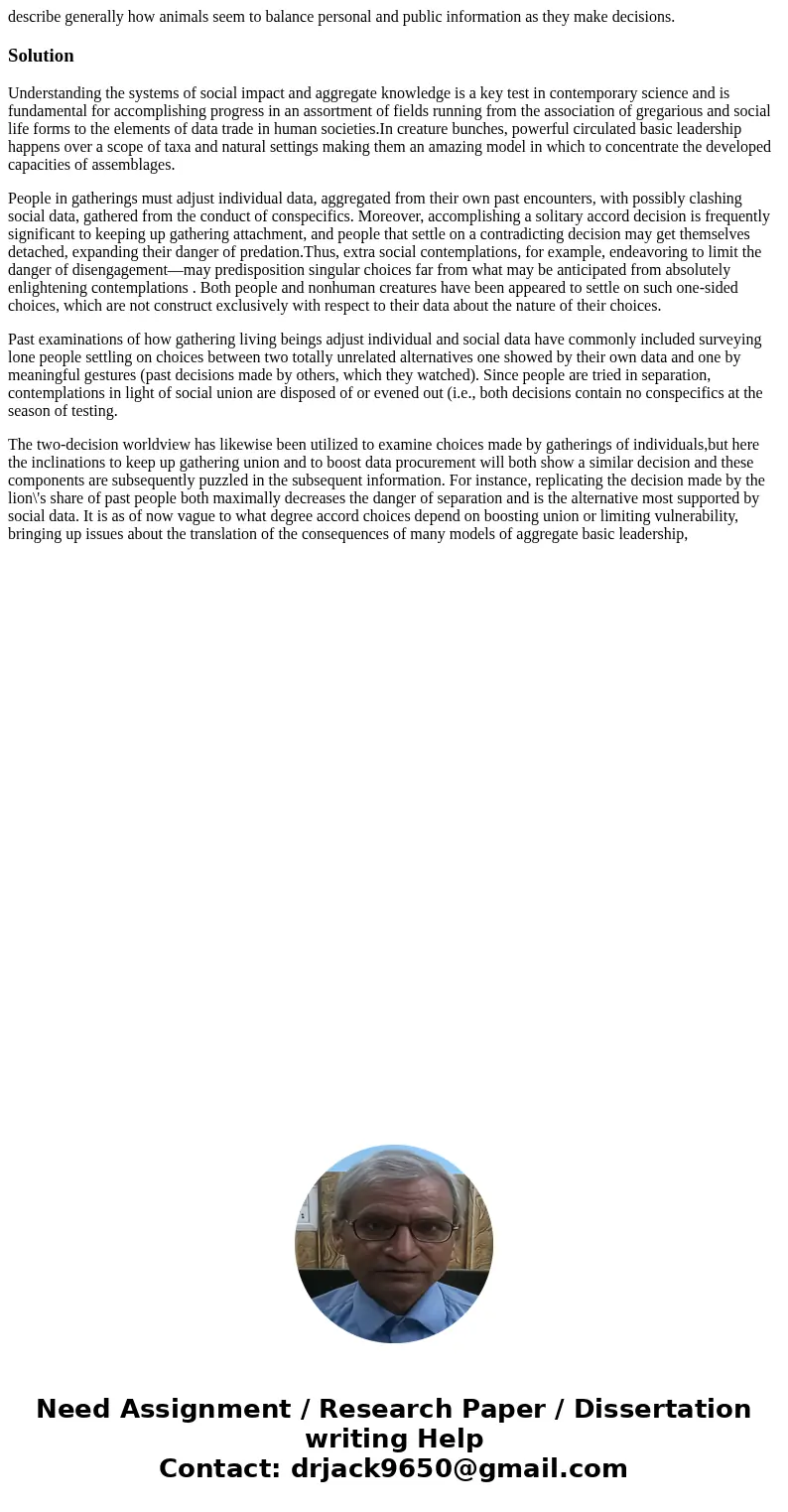describe generally how animals seem to balance personal and
describe generally how animals seem to balance personal and public information as they make decisions.
Solution
Understanding the systems of social impact and aggregate knowledge is a key test in contemporary science and is fundamental for accomplishing progress in an assortment of fields running from the association of gregarious and social life forms to the elements of data trade in human societies.In creature bunches, powerful circulated basic leadership happens over a scope of taxa and natural settings making them an amazing model in which to concentrate the developed capacities of assemblages.
People in gatherings must adjust individual data, aggregated from their own past encounters, with possibly clashing social data, gathered from the conduct of conspecifics. Moreover, accomplishing a solitary accord decision is frequently significant to keeping up gathering attachment, and people that settle on a contradicting decision may get themselves detached, expanding their danger of predation.Thus, extra social contemplations, for example, endeavoring to limit the danger of disengagement—may predisposition singular choices far from what may be anticipated from absolutely enlightening contemplations . Both people and nonhuman creatures have been appeared to settle on such one-sided choices, which are not construct exclusively with respect to their data about the nature of their choices.
Past examinations of how gathering living beings adjust individual and social data have commonly included surveying lone people settling on choices between two totally unrelated alternatives one showed by their own data and one by meaningful gestures (past decisions made by others, which they watched). Since people are tried in separation, contemplations in light of social union are disposed of or evened out (i.e., both decisions contain no conspecifics at the season of testing.
The two-decision worldview has likewise been utilized to examine choices made by gatherings of individuals,but here the inclinations to keep up gathering union and to boost data procurement will both show a similar decision and these components are subsequently puzzled in the subsequent information. For instance, replicating the decision made by the lion\'s share of past people both maximally decreases the danger of separation and is the alternative most supported by social data. It is as of now vague to what degree accord choices depend on boosting union or limiting vulnerability, bringing up issues about the translation of the consequences of many models of aggregate basic leadership,

 Homework Sourse
Homework Sourse